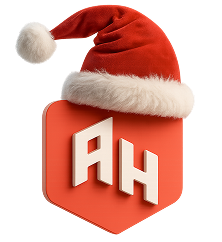What Are WordPress Hooks ?
WordPress hooks are an essential part of the WordPress development framework, allowing developers to interact with the core WordPress functionality without modifying the core files. By using hooks, you can add or modify functionality in themes and plugins. There are two main types of hooks: Action Hooks and Filter Hooks. Here’s a breakdown of what they are and how to use them.
What Are WordPress Hooks?
Hooks are predefined points in WordPress that allow you to “hook” into WordPress functions and execute custom code. This allows you to modify or extend the functionality of WordPress core, themes, and plugins without directly editing the original files.
There are two main types of hooks:
- Action Hooks: Allow you to add or execute custom code at specific points during WordPress execution (e.g., when a post is published or when a page is loaded).
- Filter Hooks: Allow you to modify or manipulate data before it is sent to the browser or saved to the database (e.g., modifying content or changing output).
1. Action Hooks
Action hooks are triggered at various points during WordPress’s operation. They allow you to add functionality at specific stages of the WordPress loading process or when certain events occur (such as publishing a post or displaying the footer).
How to Use Action Hooks:
To use an action hook, you use the add_action() function in your theme’s functions.php file or in a custom plugin. This function links your custom function to a specific hook.
Syntax:
Example:
Let’s say you want to add custom content at the end of every post:
In this example, the_content is the hook that triggers the function to append custom content at the end of every post.
2. Filter Hooks
Filter hooks allow you to modify the output of data before it is rendered on the screen or saved to the database. Filters receive data, modify it, and return it.
How to Use Filter Hooks:
To use a filter hook, you use the add_filter() function, which applies a custom function to modify specific content.
Syntax:
Example:
Let’s say you want to change the title of every post to be in uppercase letters:
In this example, the_title is the hook that filters post titles, and the uppercase_post_title() function converts all titles to uppercase.
Popular WordPress Hooks
Here are some commonly used hooks in WordPress:
Action Hooks:
- wp_enqueue_scripts: Use this to add or remove scripts and styles.
- init: Runs after WordPress has finished loading but before any headers are sent.
- wp_footer: Executes code right before the closing </body> tag in your theme.
- publish_post: Triggered when a post is published.
Filter Hooks:
- the_content: Allows you to filter the post content before it is displayed.
- the_title: Allows you to modify post titles.
- excerpt_length: Modify the length of post excerpts.
- wp_nav_menu_items: Filter the output of navigation menu items.
Best Practices for Using Hooks
- Avoid Editing Core Files: Always use hooks in custom themes or plugins to maintain compatibility with future updates.
- Unique Function Names: Always use unique names for your custom functions to avoid conflicts with other plugins or themes.
- Use Conditional Logic: When using hooks, use conditional checks like is_single() or is_admin() to ensure your code runs only when needed.
Conclusion
ordPress hooks are a way to add or modify functionality without changing core files. There are two main types:
Action Hooks – let you run custom code at specific points in WordPress.
Filter Hooks – let you modify data before it’s displayed or saved.
Example – Action Hook: Adding a message to the footer:
This code adds the message at the bottom of every page without touching WordPress core files.







